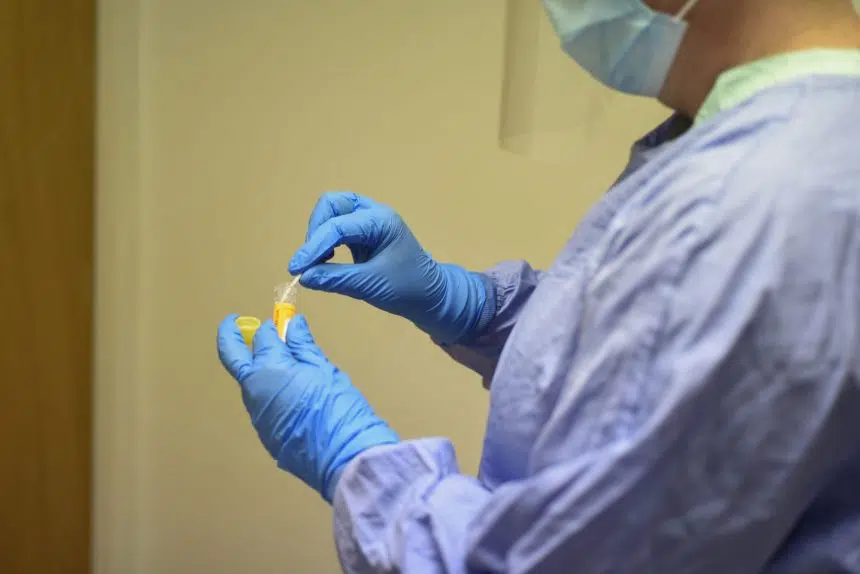The measures Saskatchewan has been taking against the COVID-19 pandemic haven’t been working against the variants, according to former Saskatchewan deputy medical health officer Dr. Anne Huang.
Huang said the current information suggests the variants — including the current dominant strain in the province and especially Regina, B.1.1.7 — were introduced in and have been spreading since January.
Unless different approaches are taken, Huang said we’ll continue to see rapid spread of the variants.
The B.1.1.7 variant cases are worrisome for Huang. It has been established that variant is about 1.7 times more contagious than the original virus, but Huang said there’s some new information out of the United Kingdom that indicate the variant has an increased risk of serious outcomes and death.
“That translates into more people who will need acute care, and more people will require our limited health-care resources,” said Huang.
Looking at the current numbers, Huang said we’re probably at the point of the pandemic switching to variants.
“In a few weeks’ time, we can expect to see the number of hospitalizations and potentially deaths of cases concentrating in Regina as a result of COVID-19 infection with the variants,” said Huang.
By its nature, COVID-19 looks for the next easy target, the next easy host to infect, explained Hung.
“If we provide the opportunity of susceptible individuals to become exposed and become infected then we will certainly see a rise, a continual rise, of the variant cases in Regina,” she said.
So Huang said the province needs to change the number of social interactions that lead to transmission happening. She said better infection prevention and control protocols are needed.
“And of course the general public needs to become aware of the situation and limit unnecessary interaction,” said Huang.
But she said the province also needs systematic intervention like restrictions introduced to ensure the number of contacts between people are minimized.
According to the Saskatchewan Health Authority’s information, transmission is happening most in workplaces and in the household.
So Huang said more attention and support need to be given to people who might live in a more crowded situation and can’t isolate away from family and who also have to go in to work – whether because they need the money or their workplace doesn’t provide help.
Huang said that part of the population has been very affected by the pandemic and has been neglected from the conversation.
Huang advocates for clearer supports for people who need to stay home, and accessible places for people to isolate if they need it.
As for vaccinations, Huang said more people getting the shots will help because they are known to reduce sickness and serious outcomes, even with the B.1.1.7 variant.
However, Huang said the idea the province can stay the course with current public health measures because vaccinations are ramping up is “not consistent with science.”
She said herd immunity is the point at which enough people in the population are no longer susceptible to the virus that community transmission stops, but that changes with a variant.
“If a virus is more transmissible, meaning its basic reproductive number or R-nought, is now 1.7 times of the original transmissibility, that means then that we actually need a much higher proportion of the population to have immunity against the variant of concern to stop transmission,” she said.
Huang said herd immunity in that case could require up to 80 or 90 per cent of the population.
Huang said no one wants to be in this pandemic longer than they need to, but the more the province follows science, the faster everyone will get out of it.











